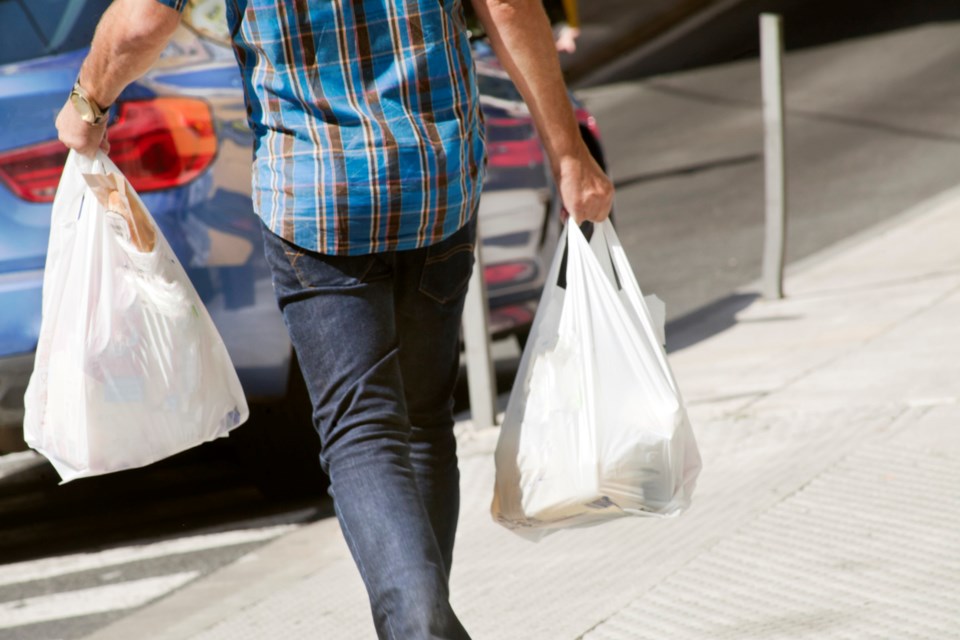Vancouver business owners are open to reducing their impact on the environment and say they are willing to accept whatever bylaws the city enacts to keep people from using single-use plastic items. The catch, they say, is that switching to more sustainable packaging could increase prices.
The only change that the city has so far mandated is a ban as of Jan. 1 on polystyrene containers, such as the foam packaging used frequently for takeout sushi meals.
City staff are gearing up to start educating restaurant owners on that change and will suggest alternative packaging materials. Breaking the bylaw will likely first result in warnings, but penalties ramp up to $250 violation tickets for each infraction.
The next ban on single-use plastic items is likely to be for plastic straws.
City council voted last year to ban plastic straws starting June 1 but in April voted to rescind that ban and instead support an agreement in principle to ban the straws as of April 2020.
However, for that ban to take effect, council needs to reconfirm its intent in a future vote that will likely happen in November.
Many bubble-tea shop owners remain concerned about a plastic-straw ban because they are having trouble finding alternatives to wide bubble-tea straws, British Columbia Restaurant & Food Services Association CEO Ian Tostenson told Business in Vancouver.
City hall appears to be listening.
Monica Kosmak, senior project manager for the city’s single-use item reduction strategy, told BIV that city staff are “taking [bubble-tea store owners’ concerns] into consideration” and may suggest that those stores be exempt from the ban.
She said that under the proposed city bylaw bendable plastic straws might be allowed if customers ask for them for “accessibility” reasons.
Kosmak added that customers would not have to demonstrate a disability to receive such a straw.
A ban forbidding business owners from providing carry-out plastic bags is the most wide-reaching and significant change that the city is contemplating.
Some large retailers are acting before they are forced to act.
Whole Foods Market long ago phased out plastic bags, and it provides customers only with paper bags, while Safeway’s owner, Sobeys Inc., plans to phase out plastic bags by the end of January.
The British Columbia Liquor Distribution Branch is in the early stages of shifting to paper from plastic bags and has a request for proposals out for potential bag suppliers.
Save-On-Foods president Darrell Jones told BIV that he does not foresee a mandated shift to paper bags being a problem, but he thinks the city should hold meetings with large retailers and work with them on potential challenges before instituting any ban.
“A lot of concern is that our customers won’t be happy with it, but in terms of us being able to get paper bags, I don’t see that as being an issue,” he said.
“The cost will be much higher, so the customers will have to bear the cost.”
Kosmak and other city staff, however, are drafting a potential bylaw for a plastic-bag ban that is likely to require that any retailer or restaurant owner who provides a paper bag charge $0.25 per bag. That would be similar to a City of Victoria bylaw introduced in 2018.
The B.C. Court of Appeal struck down Victoria’s bylaw in July because it ruled that the city required provincial approval. However, the City of Vancouver operates under a different charter, which city staff believe allows it to enact such a bylaw without provincial approval.
Jones said $0.25 per bag is too high.
“All that does is anger our customers because they think that we want to charge them $0.25 for a bag,” he said. “It’s very bad for us.”
The environmental impact of banning carry-out plastic bags has also been questioned.
University of Sydney economist Rebecca Taylor’s study published earlier this year found in that banning carry-out plastic bags in California eliminated 40 million pounds (18 million kilograms) of plastic but was offset by a 12-million-pound (5.4 million kilograms) increase in plastic garbage bag purchases.
Restaurant owners, such as Edible Canada principal Eric Pateman, have long used paper bags and compostable containers for takeout orders. Pateman said he does not deliver items that he thinks will not travel well in those containers.
Pink Elephant Thai and Thai House use hard plastic containers to deliver soups and curries, and principal Desmond Chen told BIV that he is looking for more sustainable alternatives.
The good news for Chen is that there is no rush.
Kosmak said the City of Vancouver does not plan to eliminate hard plastic single-use containers because they can be put in customers’ recycling bins.
The B.C. government is seeking feedback until September 30 on how it should make regulations to reduce plastic waste.
Click here for original story.



